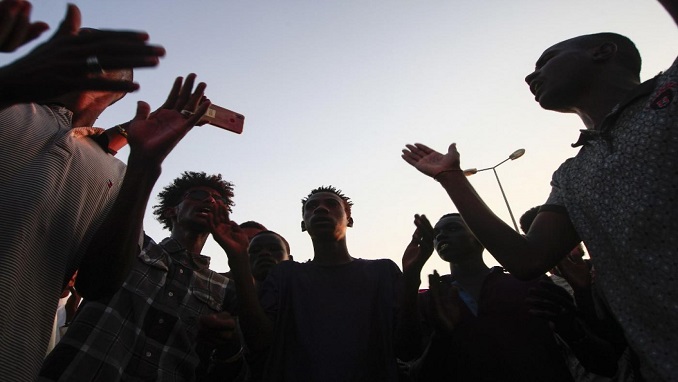South Sudanese President Salva Kiir says his government will no longer deploy security forces to intervene when inter-communal fighting breaks out in Jonglei state and the Pibor Administrative Area, the scene of repeated deadly clashes, Voice of America reported.
“Next time when you go and fight, I will not come to your rescue again nor form a committee to go to the war zone. I have decided that any other fighting that erupts, I won’t send either soldiers or the police. I will leave you to fight yourselves until one section runs from the other,” Kiir said Wednesday while addressing a peace conference for Jonglei and Pibor in Juba.
Political analysts in the capital immediately said Kiir is taking the wrong approach and are calling on the president to withdraw his statement.
Augustino Ting Mayai, a researcher and analyst with the Sudd Institute, said he hopes the president misspoke because citizens look to the national government to resolve such conflicts.
“It was very unfortunate to hear that he would give up making sure that security is restored in these communities. It’s basically a signal, I’m quite sure it wasn’t intended that way, but it signals the state’s inability to monopolize violence and that should be a concern to our citizens,” Mayai told VOA’s South Sudan in Focus.
Mayai said he hopes communities will not perceive the president’s remarks as permission to attack each other.
“The communities have to find the courage to come together and bring peace among themselves and restore what has been lost in the last 15 years since South Sudan became a regional autonomy as well as a state, otherwise what else do we exist for if there’s no peace?” Mayai said.
Inter-communal fighting often triggered by cattle raids and child abductions, and heightened by ethnic tension and revenge attacks, has become an increasing problem in northeastern South Sudan. After one clash last March, medical charity Médecins Sans Frontières said it treated 45 people for gunshot wounds in Pibor and more than 80 wounded patients in Jonglei.
In May 2020, fighting between pastoralists and farm workers erupted in the Jonglei state town of Pieri, leaving hundreds dead and forcing thousands of people to flee to the bush. Aid groups saw their property raided and dozens of homes were destroyed.
James Okuk, a senior research fellow and policy analyst at the Center for Strategic Policy Studies in Juba, does not find Kiir’s remarks surprising, saying the government has not provided protection or other services to its citizens for quite some time.
“That’s why we have the UNMISS (United Nations Mission in South Sudan) in the country doing some of those duties, it’s not a new thing,” Okuk told South Sudan in Focus. “I think as human beings they will find a way to survive and move on. If they see that escalation is not good for their survival, they will stop it.”
